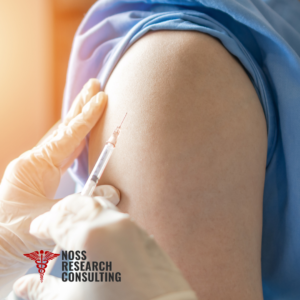
What is Chikungunya (CHIKV)?
Chikungunya Virus, also known as CHIKV, is a mosquito-borne viral disease that has been reported in over 110 countries.
The name comes from the African Kimakonde language and roughly translates to, “To become contorted”, in relation to the hunched appearance of those with chronic CHIKV pain.
As the areas that are greatest at risk are the Americas, parts of Africa, and Southeast Asia, over 75% of the world’s population is at risk to contract the disease.
97% of those infected with CHIKV are symptomatic, and show signs of the disease during both the acute and chronic phases of infection.
What are the Symptoms?
The acute phase is characterized by:
- Headache
- Muscle pain
- Red eyes
- Nausea
- Vomiting
- Rash
Symptoms will begin during the first 3-7 days after being bitten and will persist for 5-7 days. Typically, acute symptoms will resolve after 7-10 days, however, 43% of people do not recover from the acute phase.
If the acute phase does not resolve, the chronic phase may persist for months or even years. Survey respondents within the chronic phase reported that:
- 78.6% of patients have persistent muscles and joint symptoms after 2 years of infection
- 57& of patients still report being affected after 2.5 years after onset
Because of the ease of infection as well as the longevity of the disease, pharmacovigilance experts are recommending a CHIKV vaccine to those who are:
- Frequent travelers to CHIKV-endemic areas
- Spontaneous travelers without known travel plans
- Long and short term travelers
- Planning to move to chikungunya-endemic areas
CHIKV Vaccine Efficacy
The efficacy of the Ixchiq vaccine is promising, with strong seroresponse rates observed in clinical studies. Impressively, 98.9% of participants demonstrated seroresponse within 28 days of a single dose, and these rates remained high even six months post-vaccination. Importantly, age did not appear to impact the effectiveness of the vaccine, providing reassurance for older populations.
Safety is paramount in any vaccination campaign, and the Ixchiq vaccine has undergone rigorous evaluation. Clinical studies have shown favorable tolerability, with mild reactions such as tenderness, pain, and redness at the injection site being the most common. Other mild adverse reactions, including headache, fatigue, and nausea, were reported but were generally manageable.
Crucially, severe adverse reactions were rare, further emphasizing the safety profile of the vaccine. With such promising results, the Ixchiq vaccine represents a significant step forward in the fight against chikungunya, offering hope for a future where this debilitating disease no longer poses a threat to global health.
In conclusion, the development of the Ixchiq vaccine marks a pivotal moment in the battle against chikungunya. With its high efficacy, favorable safety profile, and potential to protect millions worldwide, this vaccine represents a beacon of hope in our efforts to combat mosquito-borne diseases and improve public health outcomes.
Source: CDC


0 Comments